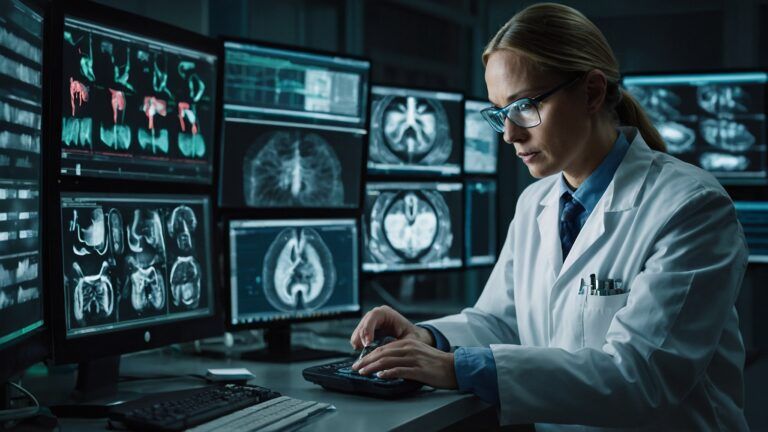- Álvaro Pascual-Leone, Professor of Neurology at Harvard Medical School: “Brain diseases cost 15% of the world’s GDP”.
- Dr. Francisco Lopera, a renowned Colombian neurologist, stresses the need for prevention of diseases such as Alzheimer’s and says that “in five years we will have much more effective and interesting treatments and in 10 years we will have 100% effective treatments to prevent and cure it”.
- Marta Alarcón Riquelme, director of the Genomics and Oncology Research Center (GENYO), maintains that “around 30-40% of patients have a poor response to existing treatments today” and that research is being carried out so that in the future “the same treatment can be used for patients with different diseases”.
- Sonia Contera, Professor of Physics at Oxford University: “AI opens up the possibility of identifying patterns within complex systems”.
- “The time to bring science and technology together to improve patients’ lives is now,” says Jorge Pou, director of Innovation and Commercial Operations at GSK Spain.
Coinciding with World Health Day and World Health Week, ‘BioMed & Tech Talks’: Your appointment with research and innovation has celebrated its first edition turning Granada into the epicenter of Biomedicine and Biotechnology. The Hospital Clínico Universitario San Cecilio, located in the Health Technology Park, was the venue for the face-to-face sessions of this new independent, transversal, international and multidisciplinary event in which more than 40 experts in biomedicine and biotechnology participated, of which more than 40% were women.
The first edition of ‘BioMed & Tech Talks’ has counted with authentic eminences in the field of health such as Dr. Álvaro Pascual-Leone, Professor of Neurology at Harvard Medical School, ‘Speaker of Honor’ of the event; Dr. Amós García Rojas, medical epidemiologist and member of the Standing Committee for Europe of the World Health Organization (WHO); the doctor and researcher Marta Alarcón Riquelme, director of the Genomics and Oncology Research Center (GENYO) of Granada; and the renowned Colombian neurologist Francisco Lopera.
BioMed&Tech Talks’, organized by Medina Media Events, was supported by the Progreso y Salud Foundation (FPS), of the Ministry of Health and Consumer Affairs of the Andalusian Regional Government, and brought together representatives of the World Health Organization (WHO), Farmaindustria, the Andalusian Public Health System (SSPA) and health communicators’ associations, such as ANIS, AEC2 and ComunicaBiotec.
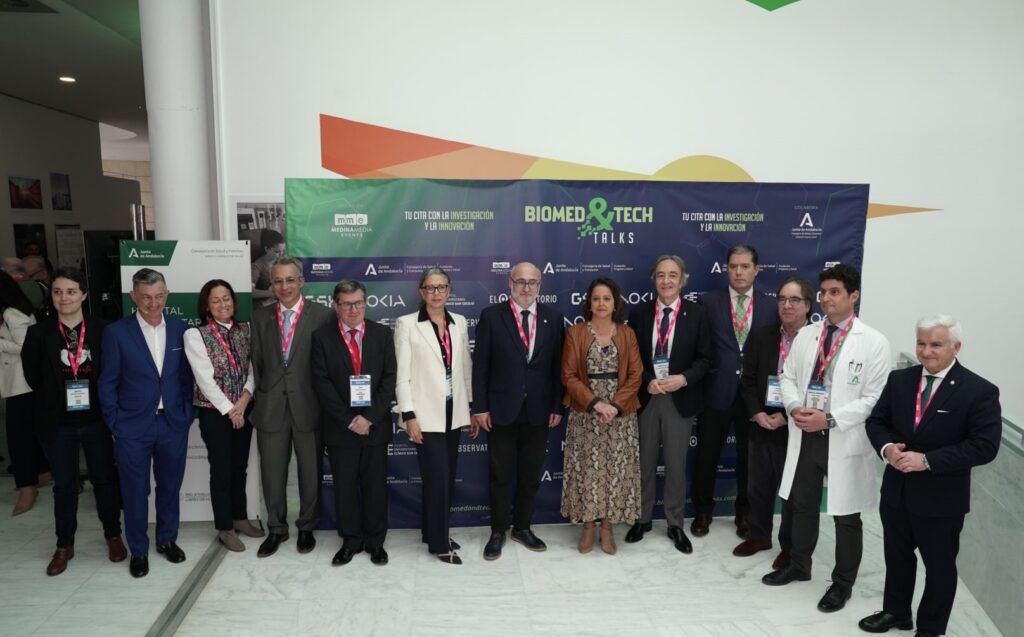
At the institutional level, the Councilor for Health and Consumer Affairs of the Regional Government of Andalusia, Catalina García Carrasco, was in charge of welcoming all those attending this event, which was also attended by the Secretary General for Public Health and R+D+I of the Regional Ministry of Health and Consumer Affairs of the Regional Government of Andalusia, Isaac Túnez; the Deputy Mayor of Granada, Vito Rafael Episcopo; the Rector’s Delegate for Health of the University of Granada, José Juan Jiménez Moleón; and Manuel Reyes, Managing Director of the Hospital Clínico San Cecilio de Granada.
Need for prevention
During the four days in which ‘BioMed&Tech Talks’ has been developed, there has been talk about brain diseases, Alzheimer’s, clinical research, advanced therapies, antibiotic crisis, natural resources, talent mismatch, public-private collaboration, Artificial Intelligence or Big Data, as well as research and innovative technological projects at public and private level both nationally and internationally, among many other issues of concern within the health sector.
One of the points on which many of the experts present at this first edition of ‘BioMed&Tech Talks’ agreed was the need for prevention. For the neuroscientist from Harvard Medical School, Álvaro Pascual-Leone, who stressed that “brain diseases cost 15% of the world’s GDP”, it is essential to “promote health and not wait for the disease to appear before we face it”, an opinion shared by the epidemiologist Amós García Rojas, who warned that “clear public health policies” will avoid the consequences suffered during the Covid pandemic in the face of a possible new pandemic.

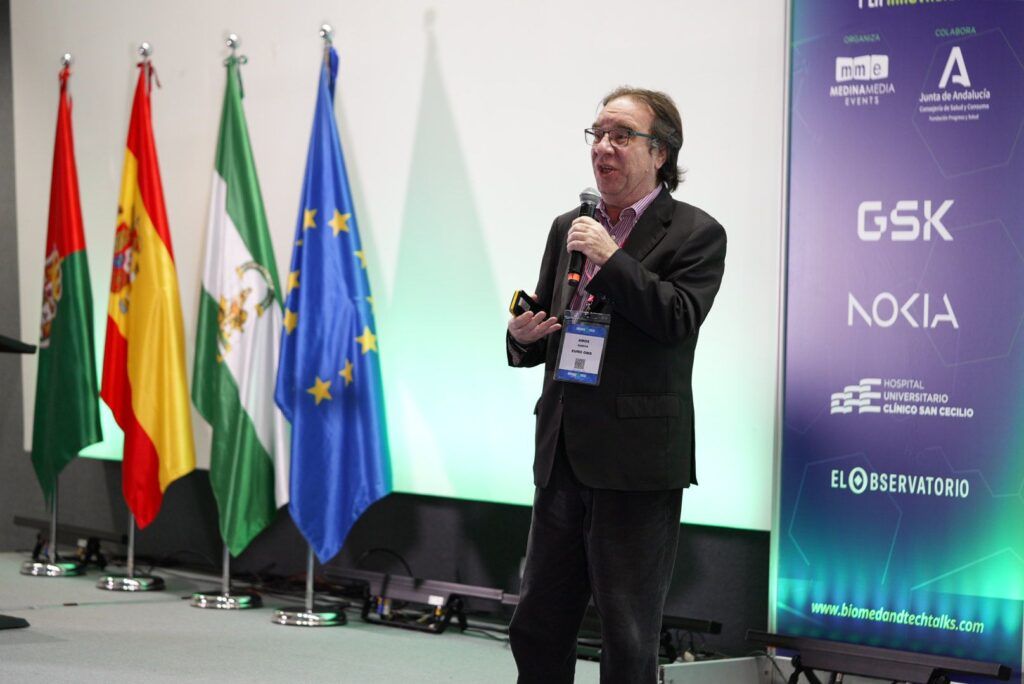
AI in healthcare is a reality
Of course, Artificial Intelligence and Big Data were also present at this event, which is set to become a benchmark in Southern Europe. “The digital future is already here,” said Armando Romanos, director of IAVANTE of the Progreso y Salud Foundation, who maintained that “the vast majority of patients feel comfortable being attended by a professional with Artificial Intelligence assistance”. The first edition of ‘BioMed&Tech Talks’ was attended by numerous technological companies that presented their ambitious projects, such as Legit.Health, a company 100% ‘made in Spain’, whose COO and Co-Founder, Taig Mac Carthy, presented this innovative project based on AI with which “to facilitate the work of Primary Care physicians so that they can attend and refer patients more easily and, in this way, relieve the saturated healthcare system”.
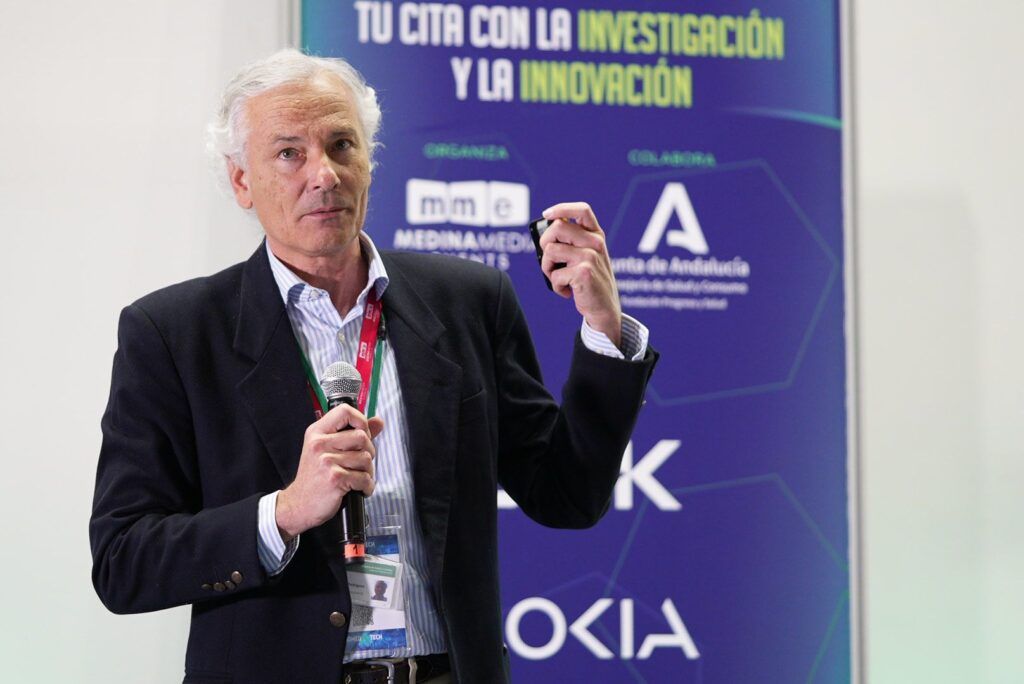
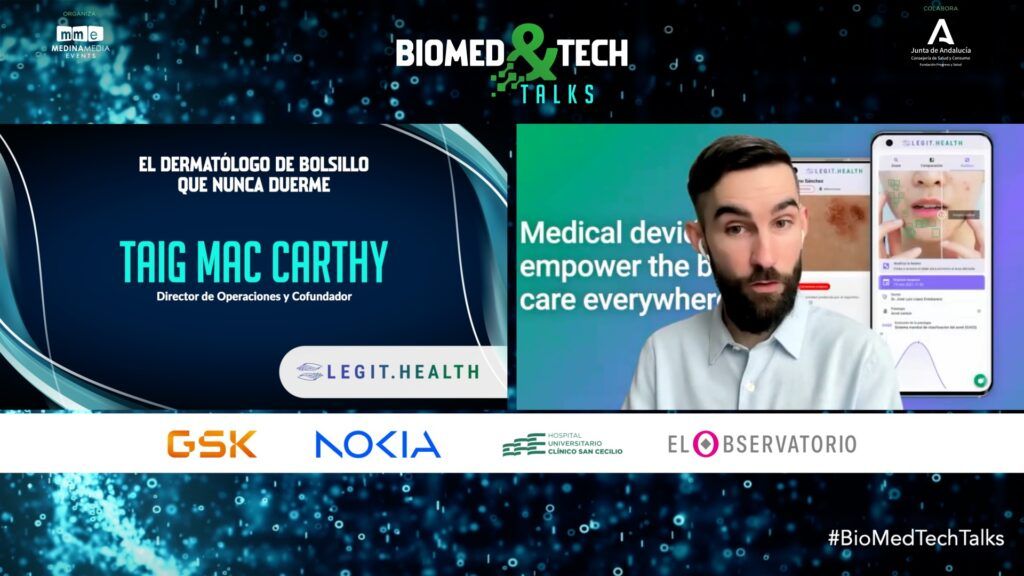
For this biotechnology entrepreneur, “doctors can never be replaced by Artificial Intelligence. The aim of this technology should be to help the doctor so that he can help patients”. An opinion also shared by the physicist and nanotechnologist Sonia Contera, Professor of Physics at Oxford University and Vice-Dean of the Faculty of Physics at Oxford University, for whom AI “opens up the possibility of identifying patterns within complex systems”, although it is true that “it also has many disadvantages” due to the complexity of many processes that humans can predict while AI will never be able to do so.

The future in clinical research
Among the different clinical research that was discussed during the BioMed&Tech Talks, Marta Alarcón Riquelme, director of the Genomics and Oncology Research Center (GENYO) in Granada, shared with those attending the event her work with the TR3 Project, which seeks to “improve the response to treatment in autoimmune, inflammatory and allergic diseases”. According to the Mexican-American researcher, “around 30-40% of patients have a poor response to the treatments currently available” and her main objective for the future is to ensure that the same treatment can be used for patients with different diseases.
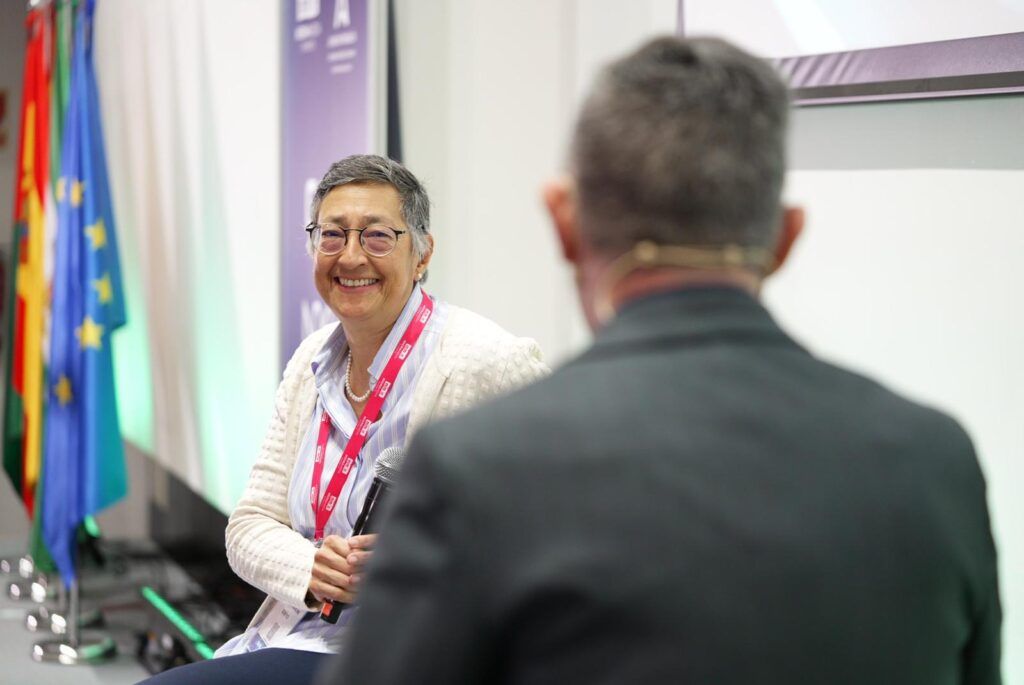
This work is carried out from the Granada Health Technology Park (PTS), a national reference that places Andalusia at the forefront of Biomedicine and Biotechnology. In fact, “50% of the clinical trials carried out in Spain are taking place in Andalusia”, as Blanca Quijano, Clinical Coordinator of the Andalusian Network for the Design and Translation of Advanced Therapies of the Progreso y Salud Foundation, pointed out, and the Andalusian region is also a pioneer in the personalized and precision medicine plan.
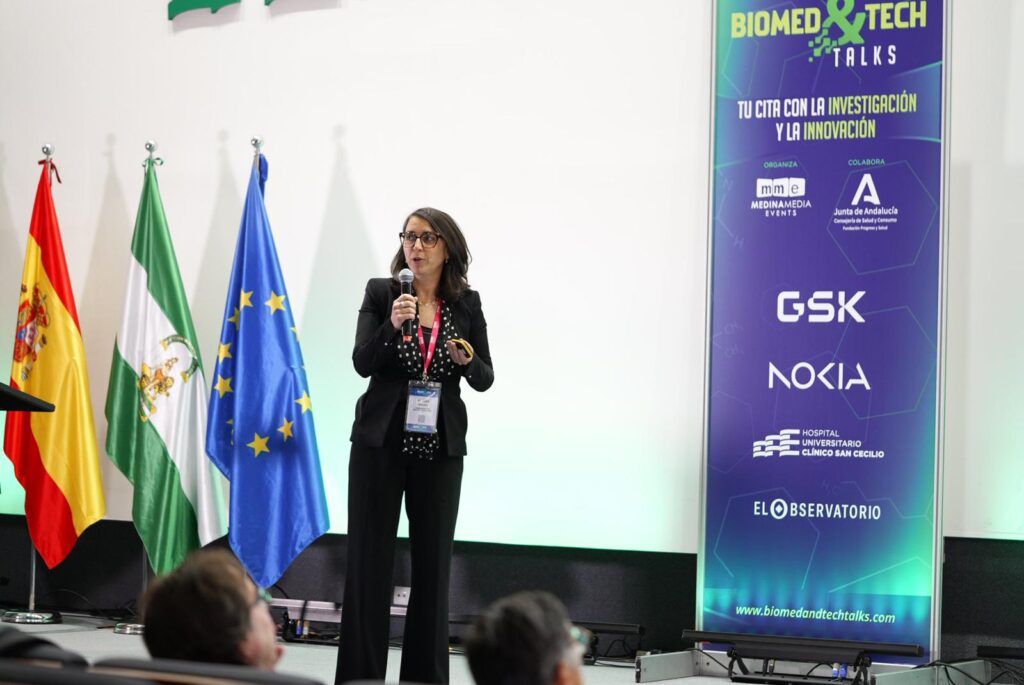
At the international level, one of the most interesting research that has been presented at BioMed&Tech Talks was that presented by the renowned Colombian neurologist Francisco Lopera, an expert in research to understand Alzheimer’s disease, who assured that “in five years we will have much more effective and interesting treatments and in 10 years we will have 100% effective treatments to prevent and cure it”.
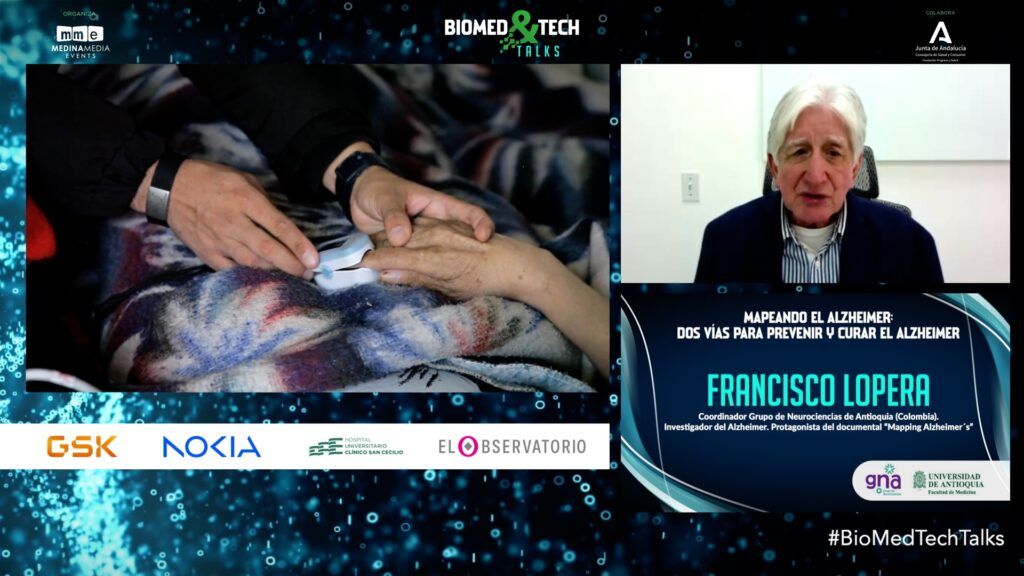
The health sector, at the forefront
Jorge Pou, Director of Innovation and Commercial Operations at GSK Spain, highlighted the significant growth experienced by the healthcare sector in recent years. “In 2023 it was the second sector in volume of investment in entrepreneurship“, being only one percentage point behind the financial sector. “The time to bring science and technology together to improve the lives of patients is now, because of the greater availability of data and the greater capacity around the world of health”.
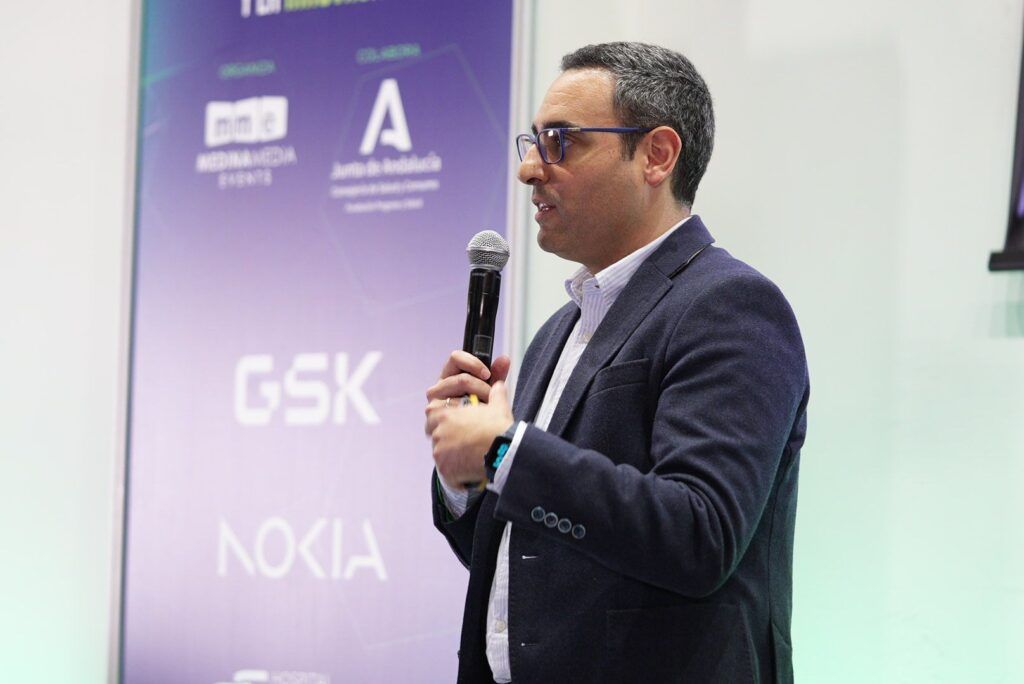
Major global antibiotic crisis
On the other hand, another of the issues that most concerns the healthcare community is the great antibiotic crisis that exists globally, since, as Jesús Rodríguez-Baño, Head of the Infectious Diseases Department at the Virgen Macarena University Hospital and Professor of Medicine at the University of Seville, stated, “for 20 or 30 years there have been no antibiotic molecules with revolutionary mechanisms of action”.
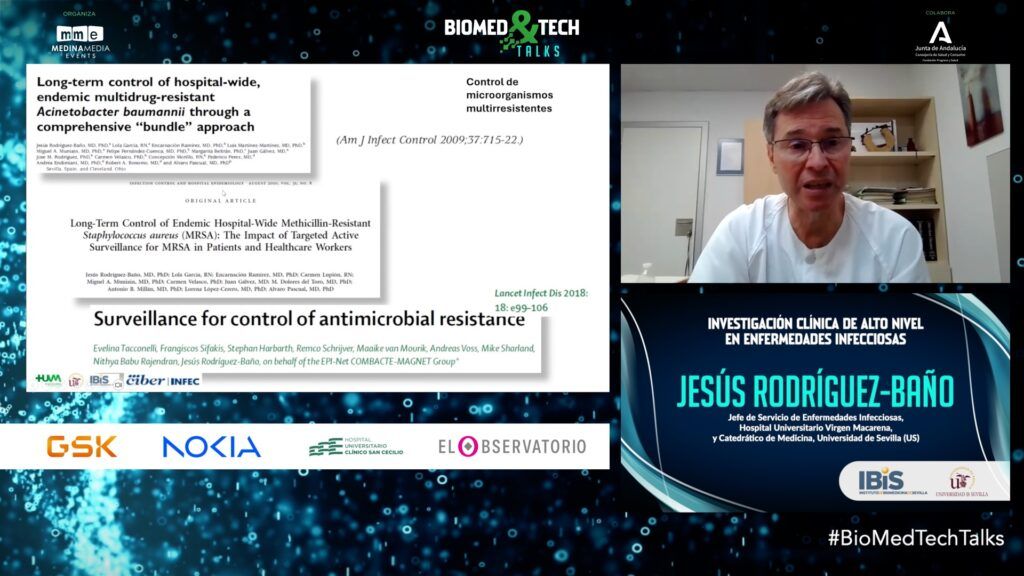
A health alert that Olga Genilloud, scientific director of the MEDINA Foundation (Innovative Medicines in Andalusia), also expressed, for whom the lack of new antibiotics “is a problem that we have to address and solve collectively”.

Precisely, the MEDINA Foundation carries out important work in the discovery of drugs from natural products of microbial origin that serve as inspiration for “more than 50% of the drugs we use today”, the sea being a great source of resources for the discovery of new drugs.
State-of-the-art demonstrations
During the two days at the Hospital Clínico San Cecilio in Granada, all visitors were able to enjoy demonstrations by leading companies and organizations worldwide. From an ICU model to show the methodology to be used in complex and highly uncertain moments, to an Extended Reality experience by Nokia, which has the possibility of treating the phobias of people with intellectual disabilities, or even a bioprinter and a bioreactor that make available to research and science a custom-designed technology, born to integrate the advantages of additive manufacturing with tissue engineering, applied to regenerative medicine.
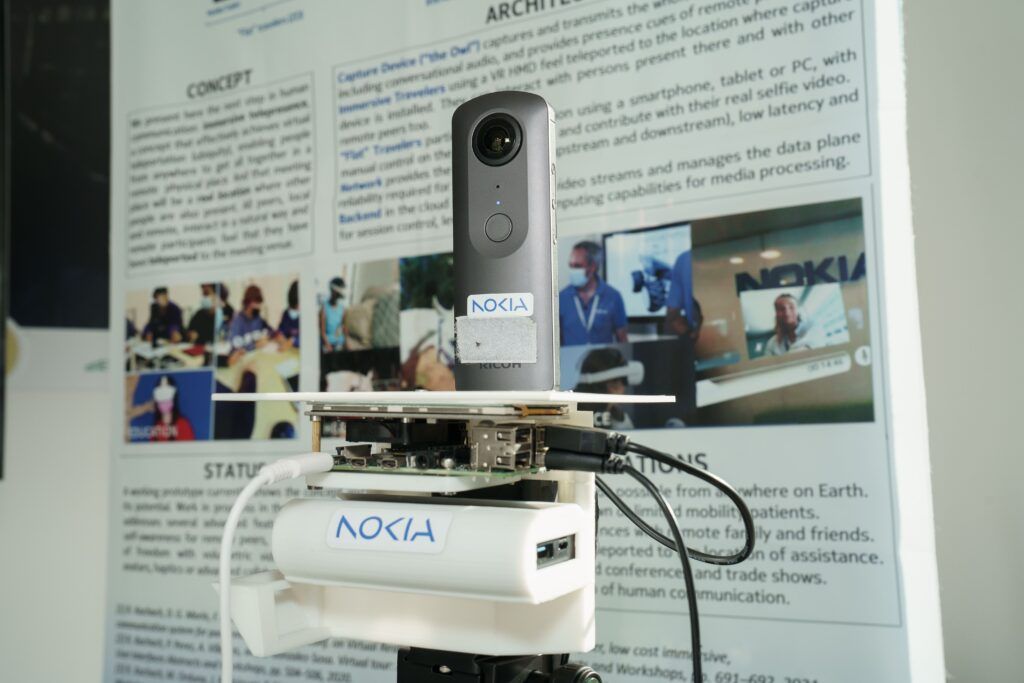
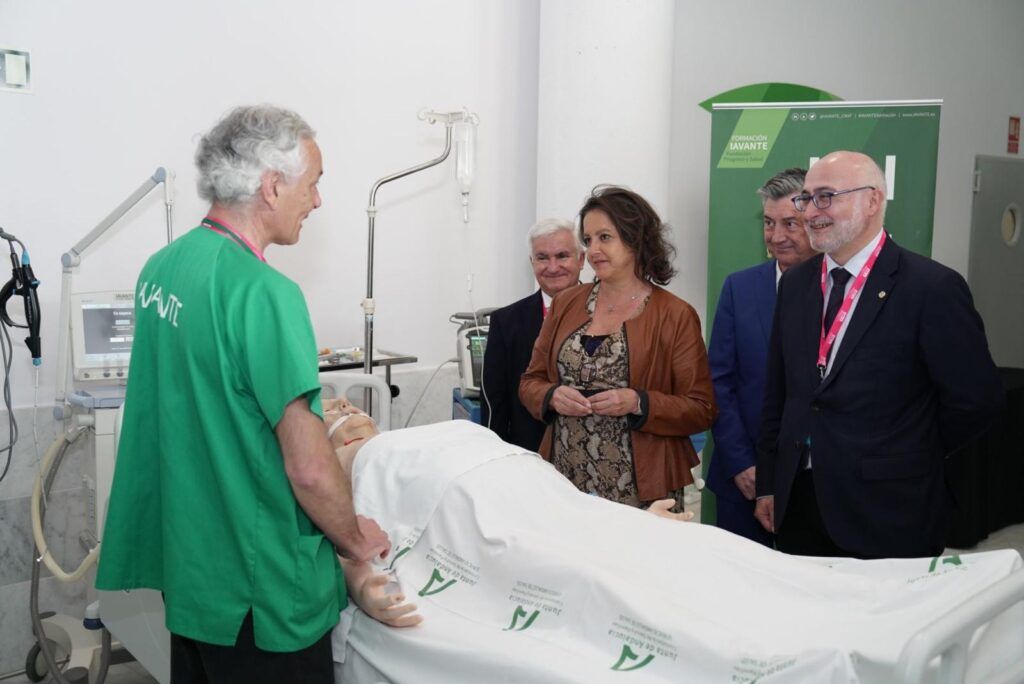

An innovative format
All the presentations of ‘BioMed & Tech Talks’ are available 24/365 through ‘El Observatorio’, the digital platform of Medina Media Events, for on-demand consumption, like Netflix, but free of charge. ‘BioMed & Tech Talks’ will return in 2025 with its second edition, to be held April 7-10, again coinciding with World Health Day and World Health Week.
The first edition of ‘BioMed & Tech Talks’ has been organized by Medina Media Events in collaboration with the Fundación Progreso y Salud of the Consejería de Salud y Consumo de la Junta de Andalucía and is supported by GSK, Nokia, El Observatorio and the Hospital Clínico Universitario San Cecilio. IAVANTE, Andalucía TRADE, ASEBIO, Wellness Forum and Granada Convention Bureau, among others, have also collaborated.
